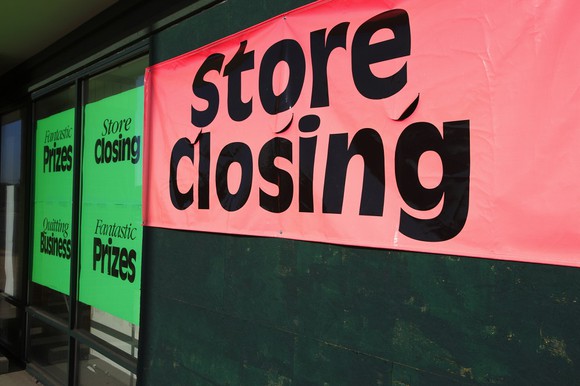Small business is the lifeblood of the U.S. economy, and it's also been the path to financial freedom for millions of people. And with a strong economy, some of the lowest unemployment levels in decades, and a lot of new opportunities for small businesses to thrive, now is a great time to start a new business.
But starting a business can be much easier than keeping it going. According to recent data, about 80% of new businesses survive their first year, but only about half make it past year five. But your new business doesn't have to be one of those that don't make it, especially if you avoid a few key mistakes. Here are three big mistakes you should make sure to avoid if you want your new business to be a success.

Image source: Getty Images.
1. Forgoing a business plan
A great idea and a strong work ethic are really important to your business' success. But when it comes to navigating many of the pitfalls of running a business, writing and then following a business plan can make all the difference. This is particularly true in the early years when so many companies fail, and often for reasons that may have been avoidable with a business plan.
If you have a solid business plan, it should mean you've put more consideration into the risks that could sink your business, such as cash flows, generating lower profits than expected, having higher expenses, and a litany of other things. In short, it's not just a playbook on how to run the business, but also should mean you've better planned for potential problems up front.

The reality of starting a small business is that you'll almost assuredly have to wear many different hats to succeed. By having a business plan to help guide your actions and more objectively measure your business' success, you'll not only avoid mistakes you may have never seen coming, but also find it easier to identify opportunities to improve your results.
2. Underestimating how much cash you'll need

Image source: Getty Images.
This is one of the biggest reasons why so many small businesses fail in their first few years. Most businesses start adding up expenses far ahead of generating a single dollar in sales. A partial list includes the following:
- Real estate
- Equipment and supplies
- Inventory
- Insurance and utilities
- Professional services (legal, financial, etc.)
- Marketing
- Employee salary
- Licenses or permits
But it's not just start-up costs. Depending on what you sell and who your customers are, it may take some time for sales to turn into cash flow, and most businesses go through an early period when expenses outpace revenue. If you don't have access to enough capital in this early stage, you may find yourself with a growing business that fails because you run out of money.
3. Not knowing your market or customers

Image source: Getty Images.
You may have what feels like a wonderful idea for a new business. But have you made sure that it's actually viable where you intend to operate? The fact is, a great idea won't be a great business if you don't have enough customers. And if you open a business in the wrong place, you may burn through all of your start-up capital before you can relocate.
And it's not just location. Are you selling the optimal goods or services? Are your prices competitive (or even too low?) Will your sales be sustainable or prove highly seasonal?
These are all questions that you can get a much better idea about with some market research before spending a single dollar on start-up costs, and could make all the difference between failure and success.
A little planning can go a long way to business success
While even well-planned, solid business ventures can still fail, you will greatly improve your chances of succeeding with preparation before you launch your business venture. Fortunately, the U.S. Small Business Administration offers a lot of resources completely free of charge, including market data (compliments of the U.S. Census Bureau and other agencies), business planning tools, and access to funding. Local chambers of commerce and other small-business groups can also make for wonderful resources to get your venture up and going.
Starting a new business can be incredibly difficult, but also very rewarding. You're almost certainly going to make mistakes along the way, but that's OK. As Thomas Edison said, "I have not failed. I've just found 10,000 ways that won't work." Avoid the mistakes you can, and learn from the ones you don't, and use that knowledge to drive your small business to succeed.